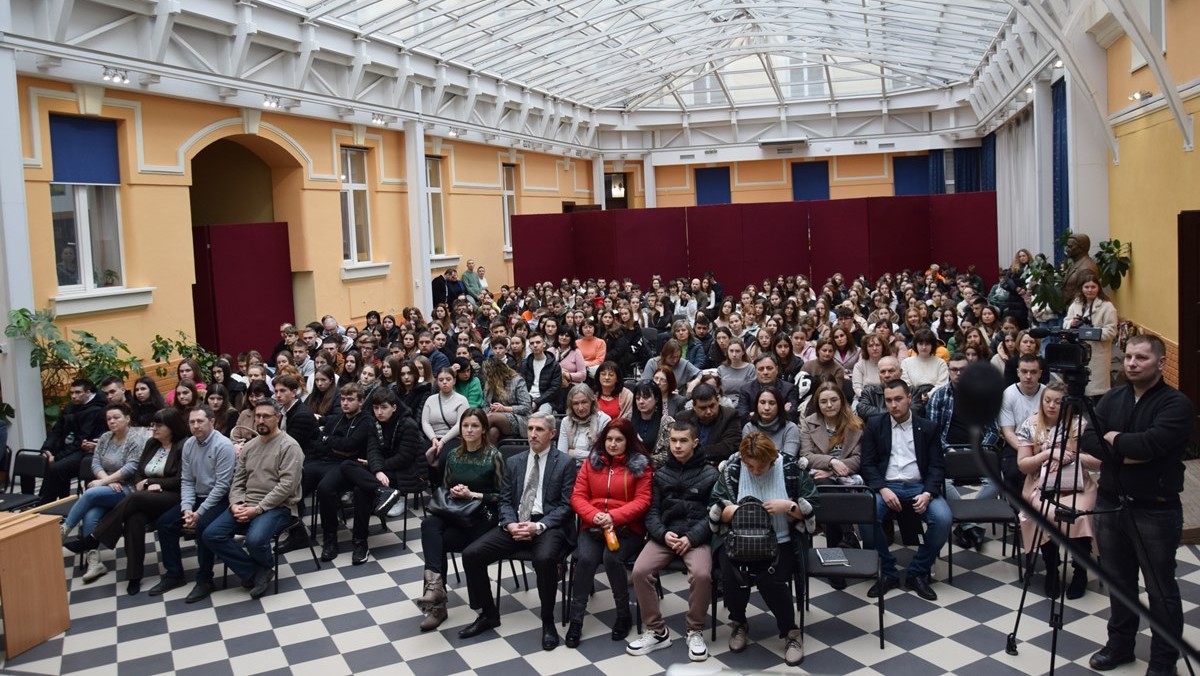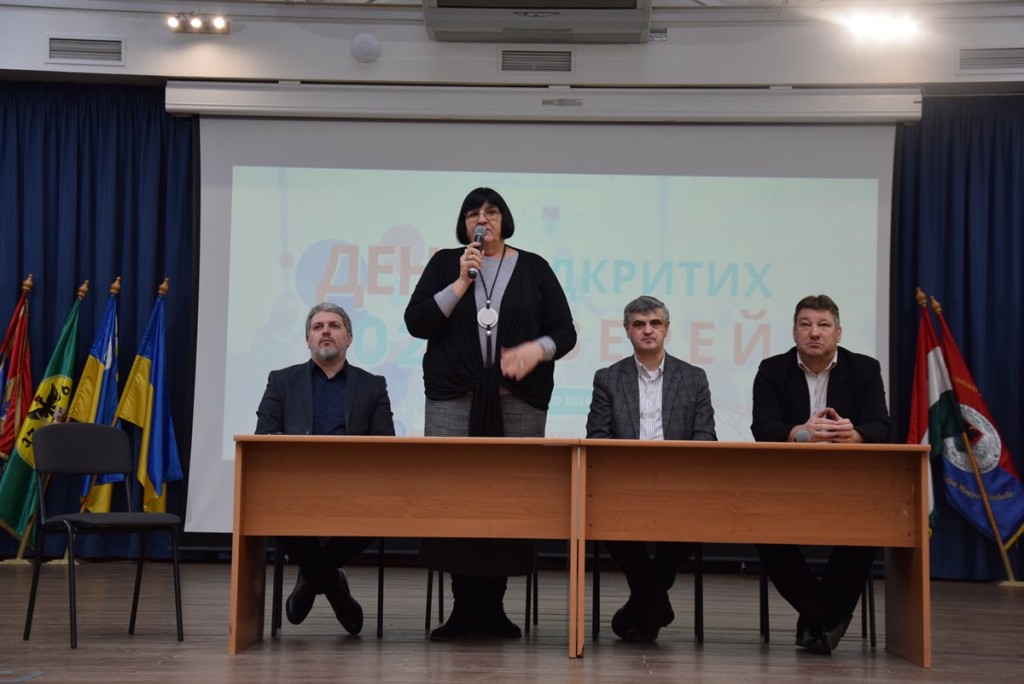Open Day at the Rákóczi College
The Ferenc Rakoczi II Transcarpathian Hungarian College of Higher Education was open to the public on 23 February. The aim of the event was to give the visitors an insight into the life of the institution and its units.
Attila Tóth, Secretary of the Admissions Committee of the Rákóczi College, welcomed the participants.
“Our institution is accredited in Ukraine, but not supported financially by the state, it is a foundation-based college with private status. This means that we receive our financial support from Hungary and we work in accordance with Ukrainian law. Currently, education is free of charge and our students receive a scholarship. But our college is not only an educational institution, it also offers numerous cultural opportunities for students,”
highlighted Ildikó Orosz, the president of our college, in her speech.
István Csernicskó, rector of the college, presented the diversity of the training programmes, highlighting that they offer 17 Bachelor’s and 10 Master’s degrees, and 3 new courses – English-German, English-Hungarian, Ukrainian-Hungarian interpreter training – have been added to the curriculum.
He was followed by Gyula Fodor, vice rector of the Rákóczi College, who presented the infrastructure and facilities of the college and the opportunities available to prospective students.
“As you have heard, our institution is diverse. I would like to draw attention to the importance of language learning. Our optional language courses give you the opportunity to learn different languages of the world, and we also provide the opportunity to take reports and exams in the language you feel most confident in,”
added Béla Rácz, vice rector.
Furthermore, Katalin Soós, director of the Rákóczi College’s Vocational High School and Dóra Kóré, director of the Hungarian Transcarpathian Lyceum introduced their institution to the 9th graders.
Then Levente Szabó, president of the Student Council of our college, drew attention to the diversity of student life and the various sports and cultural events.
Finally, Attila Tóth gave information on the expected course of the admission procedure, adding that the college’s management is waiting for the final admission procedure set by the Ministry of Education and Science. He then introduced the heads of the departments at the institution and the training programmes they offer.
Those intending to continue their studies and their parents could gain further insight into the life of the institution throughout the rest of the day and could visit the structural units. They could also inquire about the opportunities provided by the departments from the heads and lecturers of each program.
K. A.
-
This article is also available in
Українська
Magyar


